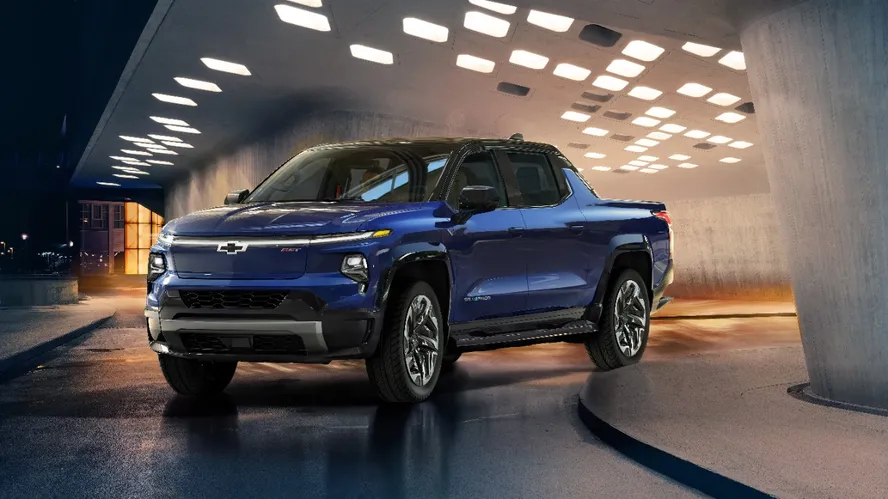In a stunning leap forward, Brazil’s electric vehicle (EV) market is charging ahead, marking a significant shift in the country’s transportation landscape. As of 2023, the Brazilian EV market has surged by an impressive 35% compared to last year, according to a report by Reuters Mobility. With international giants like Tesla and BYD setting their sights on this promising territory, Brazil is poised to become a key player in the global EV arena. In this article, we’ll explore the pivotal trends shaping Brazil’s electric vehicle revolution, uncover key market insights, and provide practical tips for those interested in joining this green wave.
Accelerating Growth: Brazil’s Electric Vehicle Market Trends
The Rise of Local and International Brands
Brazil’s EV market is no longer a nascent sector but a burgeoning field attracting major global brands. Companies such as Volkswagen and Nissan have already established significant footprints in the country, spurred by substantial investments in local manufacturing. In 2023, Volkswagen announced a $2 billion investment plan to produce electric models in Brazil, echoing similar commitments by Nissan and Hyundai.
- Local Production: By localizing production, these brands not only reduce costs but also adapt vehicles to meet regional preferences and environmental conditions.
- Competitive Pricing: Increased competition is driving down prices, making EVs more accessible to the average Brazilian consumer.
Government Initiatives and Incentives
Brazil’s government is playing a crucial role in accelerating the adoption of electric vehicles. Initiatives include tax incentives, import duty reductions, and subsidies for EV manufacturers. The Brazilian government aims to have electrified vehicles constitute at least 30% of all new car sales by 2030.
- Tax Benefits: Electric vehicle buyers enjoy reduced import taxes and registration fees.
- Subsidies: Manufacturers benefit from subsidies that lower production costs, encouraging further investment.
Expanding Charging Infrastructure
One of the primary barriers to EV adoption has been the lack of sufficient charging infrastructure. However, 2023 has seen a remarkable expansion in this area.
- Public Charging Stations: The number of public charging stations has doubled since 2022, with over 10,000 stations now operational across the country.
- Private Sector Initiatives: Companies like Enel X and EDP Brasil are investing heavily in private charging networks, enhancing convenience for EV owners.
Practical Insights for Potential EV Buyers in Brazil
How to Choose the Right Electric Vehicle
Selecting the right EV can be daunting, but understanding your needs simplifies the process:
- Range Requirements: Assess your daily driving needs. For city dwellers, models like the Nissan Leaf or Hyundai Kona Electric offer ample range.
- Budget Considerations: With increased competition, options are available for various budgets. Entry-level models like the Renault Zoe provide an affordable entry point.
Where to Buy and Service Electric Vehicles
Finding a reliable dealer and service center is crucial:
- Authorized Dealerships: Purchase from authorized dealerships to ensure warranty and service support.
- Service Networks: Brands like BYD and Tesla are expanding their service networks in Brazil, offering peace of mind to EV owners.
Charging Your EV: Options and Tips
Charging your electric vehicle efficiently is key to a seamless ownership experience:
- Home Charging: Installing a home charging station is the most convenient option. Enel X offers comprehensive home charging solutions tailored to Brazilian households.
- Public Charging Networks: Use apps to locate nearby charging stations. Memberships can offer cost savings and priority access.
Future Outlook: Brazil’s EV Market in the Coming Years
Technological Advancements
Technological innovations are set to redefine Brazil’s EV landscape:
- Battery Technology: Advances in battery technology, such as solid-state batteries, promise longer ranges and shorter charging times.
- Smart Features: Integration of smart technologies, like AI-driven navigation and energy management systems, is becoming standard in new models.
Environmental Impact and Sustainability
The environmental benefits of electric vehicles are undeniable, contributing to reduced carbon emissions and improved air quality. As Brazil continues to embrace sustainable practices, the EV market’s growth is expected to accelerate, aligning with global efforts to combat climate change.
A Call to Action
As Brazil leads the charge in South America’s electric vehicle revolution, it’s an exciting time for consumers and investors alike. Whether you’re considering purchasing your first EV or exploring investment opportunities, the time to act is now. Join us in this sustainable journey and be part of a cleaner, greener future.
In conclusion, Brazil’s electric vehicle revolution is more than just a trend—it’s a transformative movement reshaping the nation’s transportation and environmental landscape. With robust government support, expanding infrastructure, and increasing consumer interest, the future of electric vehicles in Brazil looks bright. Are you ready to be part of this electrifying change? Share your thoughts and let us know how you see the future of EVs in Brazil.

